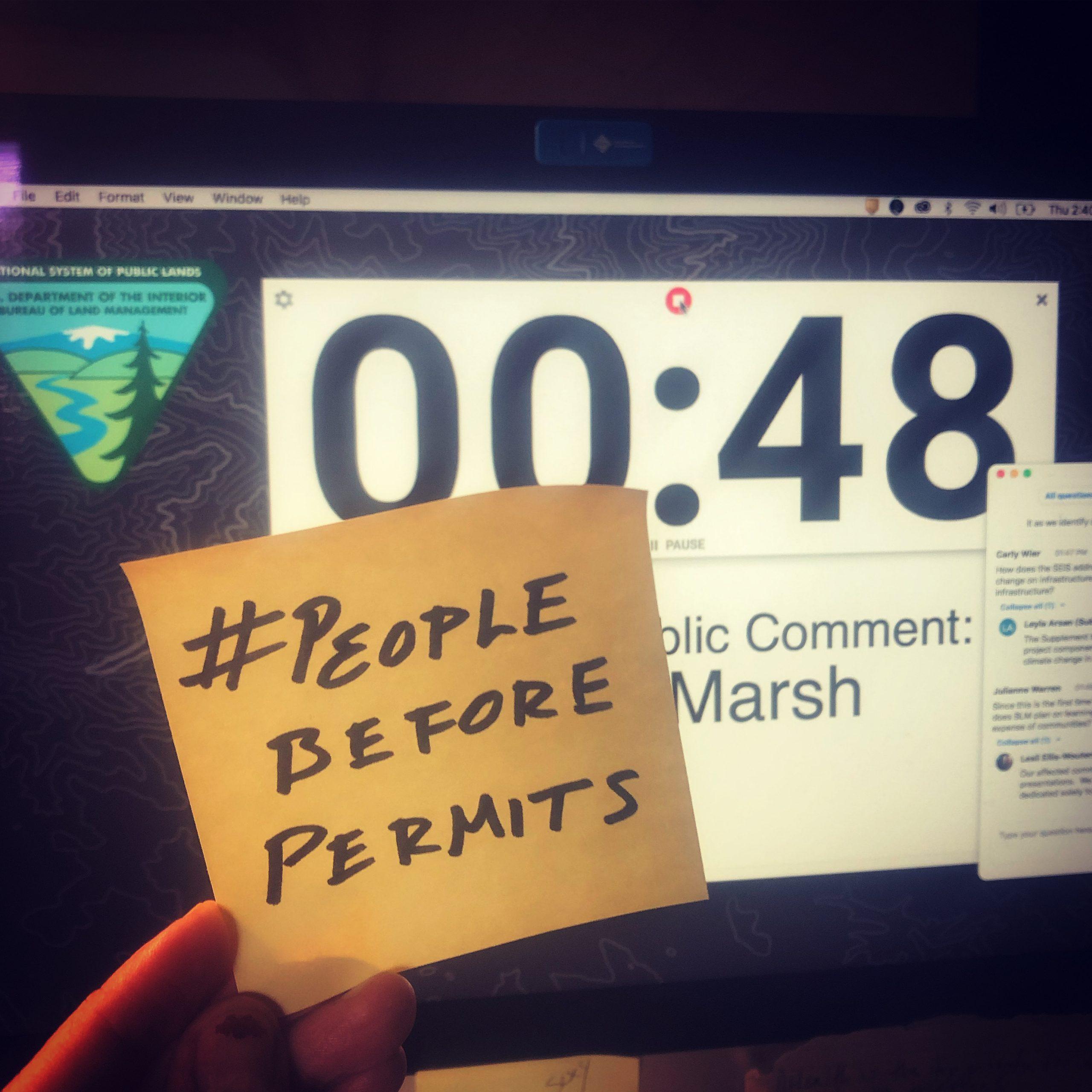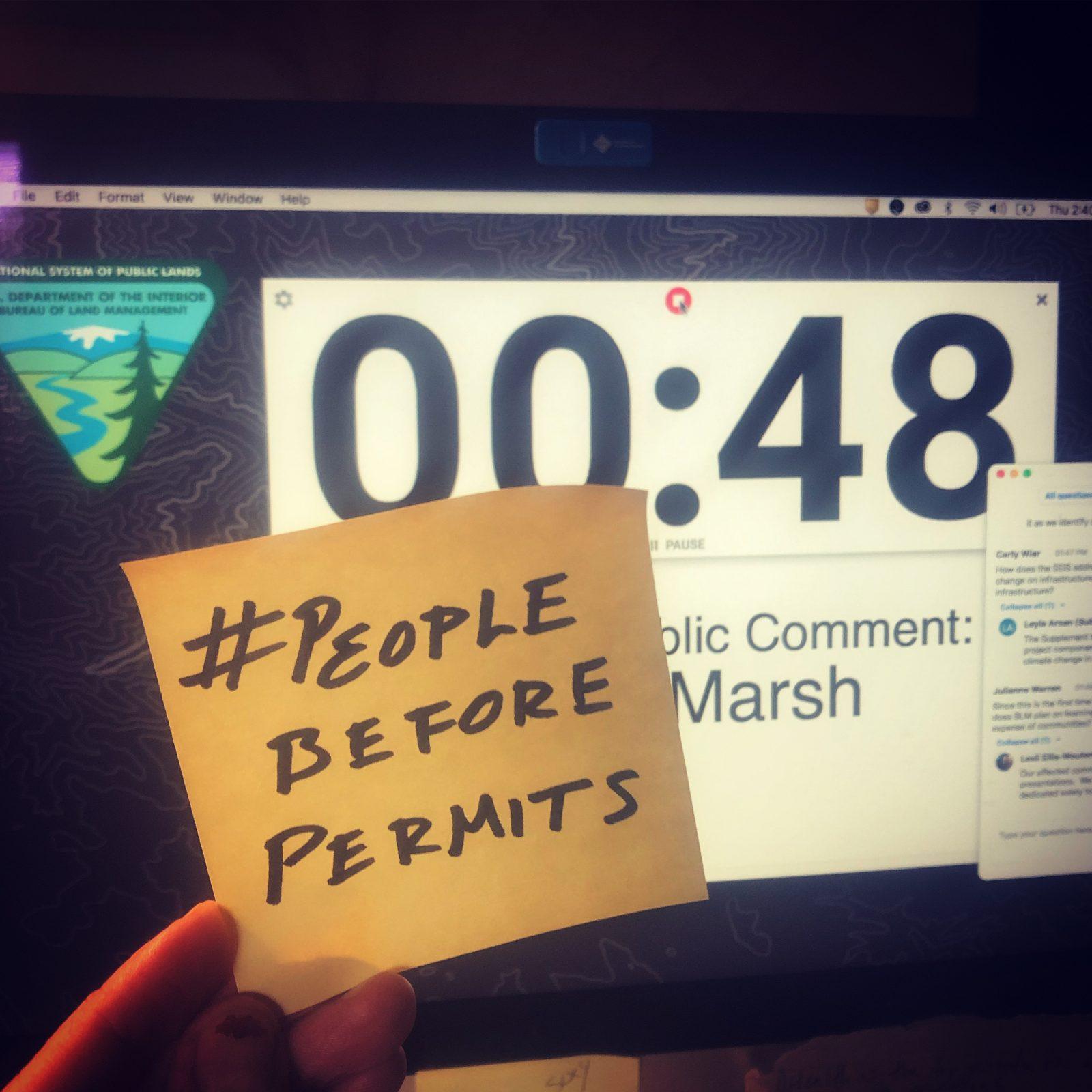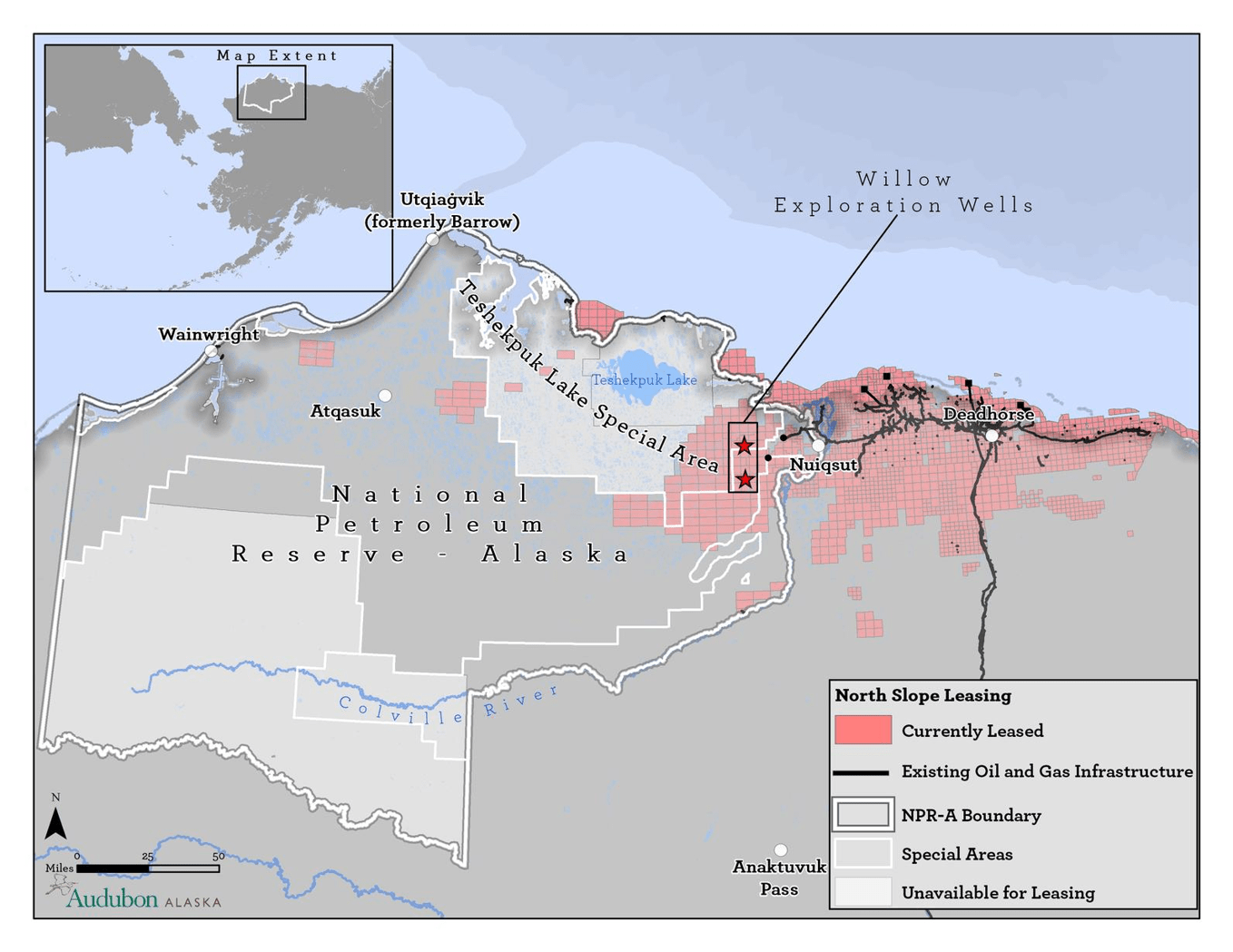
BLM pushes massive Willow oil & gas proposal during pandemic
As communities shut down and all Alaskans hunker down to stop the spread of the coronavirus and protect the health and lives of everyone, the Bureau of Land Management opened a public comment period for a massive industrial project.

Yes, you heard that right. As Alaskans lost their incomes, closed businesses, cancelled needed medical procedures, started schooling at home, and faced travel restrictions that kept them from their families, BLM pushed forward the public comment period on a supplemental draft Environmental Impact Statement for a giant carbon-polluting fossil fuel project.
Using the chaos and disruption of a pandemic to push through a project that benefits Big Oil is not only indicative of BLM’s cavalier attitude toward Alaskans’ health, but also of its insidious willingness to exploit a global crisis to benefit a private corporation.
No, this public comment period and Zoom hearings are not legitimate. They do not support public participation; they quite blatantly suppress it.
BLM needs to press pause
Already, BLM and the Army Corps of Engineers have rejected a formal request to suspend the comment period, claiming that online hearings will meet the needs of the public process. During its first hearing on April 17, people called out the illegitimacy and inequity of holding the process during a pandemic.
The agency’s insistence on holding this process disrespects the public, which deserves and should demand the opportunity to comment when not focused on coping with a global health and safety crisis.

As a practical matter, people in remote areas of Alaska regularly lack broadband or technology to meaningful participate in online platforms. Phone hearings can further alienate people by reducing their ability to hear, ask questions, or confirm that they have been heard and understood.
For BLM to plow ahead on this and other public processes demonstrates the agency’s lack of concern for or real-world knowledge of the region’s health concerns or ways of communicating. Agencies should go to communities to hear from people, not use technology to isolate people from each other and control their input.
BLM has literally asserted “business as usual” while Alaskans endure huge, constantly changing stresses on their lives and livelihoods—from lack of access to material needs to the need to focus on taking care of children and elders, and ensure the protection of their families and communities.
A pandemic is not the time
The ConocoPhillips Willow master plan proposes the construction of a new central processing facility, up to five drill pads with up to fifty wells on each pad, an extensive road system, an airstrip, pipelines, a gravel mine, and a potential gravel island in Harrison Bay.
The project would destroy and disrupt wildlife habitat and animals like the Teshekpuk Caribou Herd, an important source of food for Nuiqsut and other North Slope communities. It would further affect air and water quality in the region, and produce carbon pollution affecting vegetation, permafrost conditions, waterways, and onshore and marine animals already under stress from climate impacts.

The Willow supplemental draft EIS presents public health concerns that demand focused public scrutiny when the public is in a place of stability, and has the access and focus to do it. A pandemic is not the time.
Last Willow public hearing April 29
For those with the ability to access the online hearings, speak out for those who cannot at the last hearing on Wednesday, April 29. Sign up to attend:


